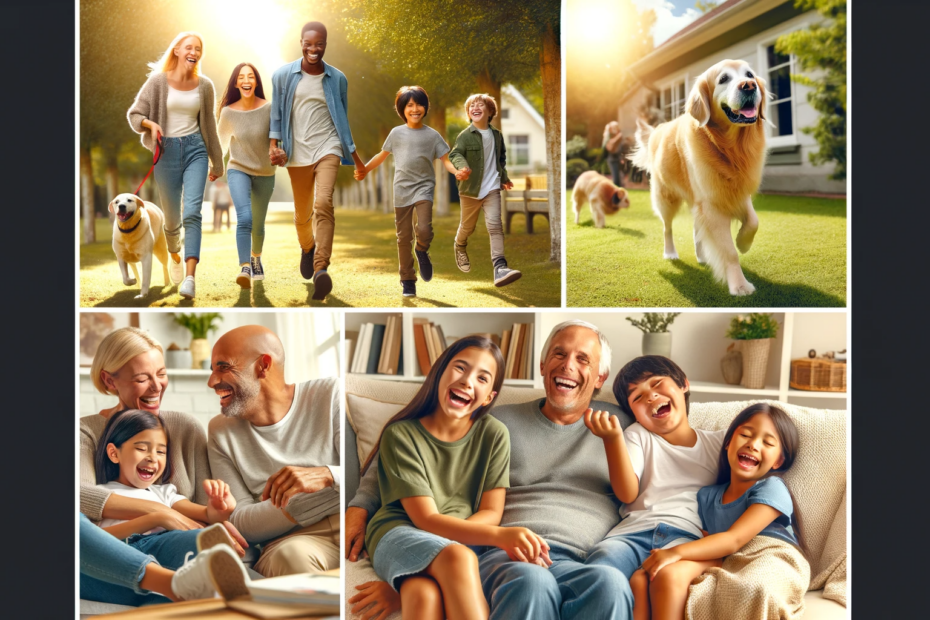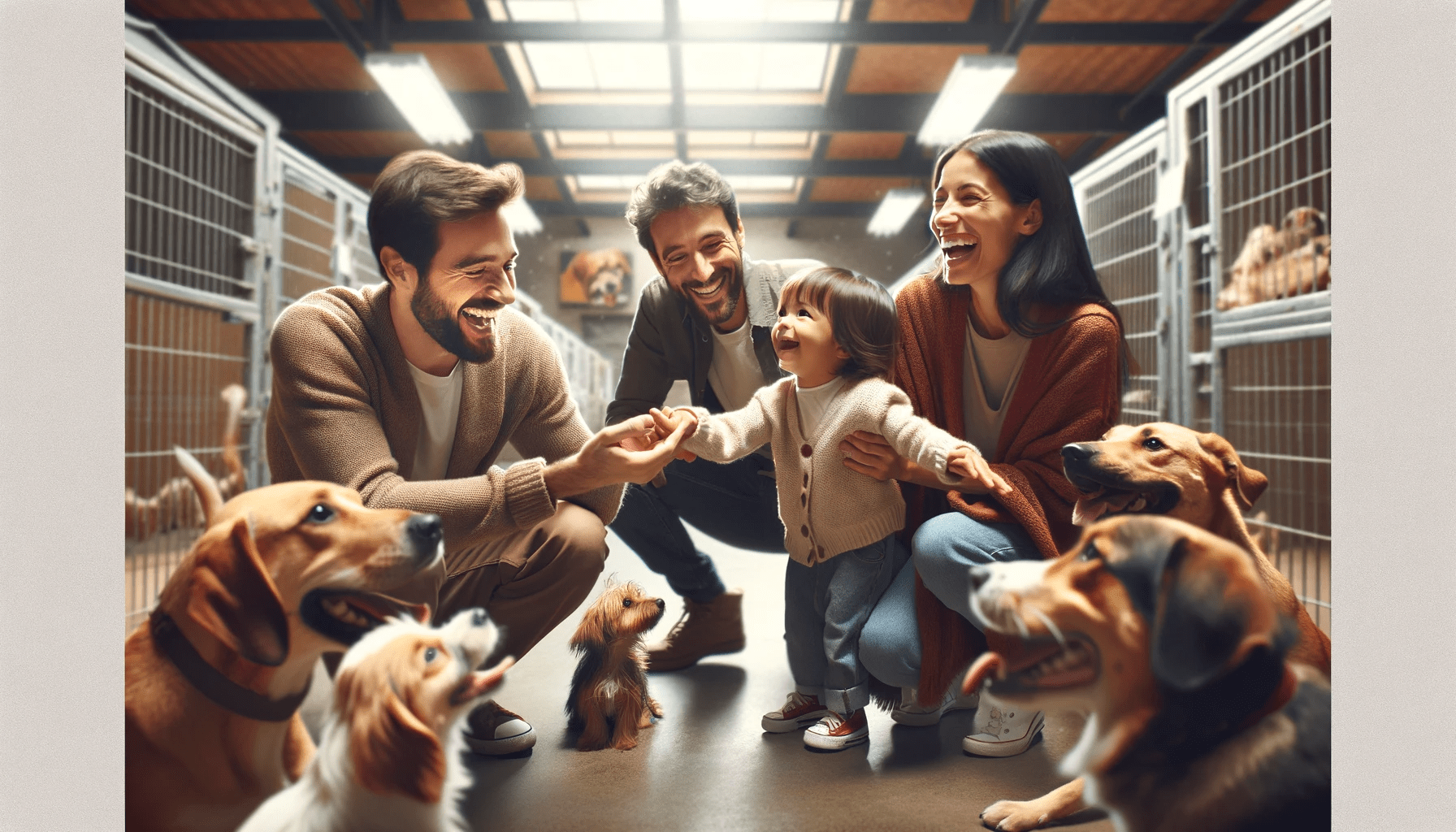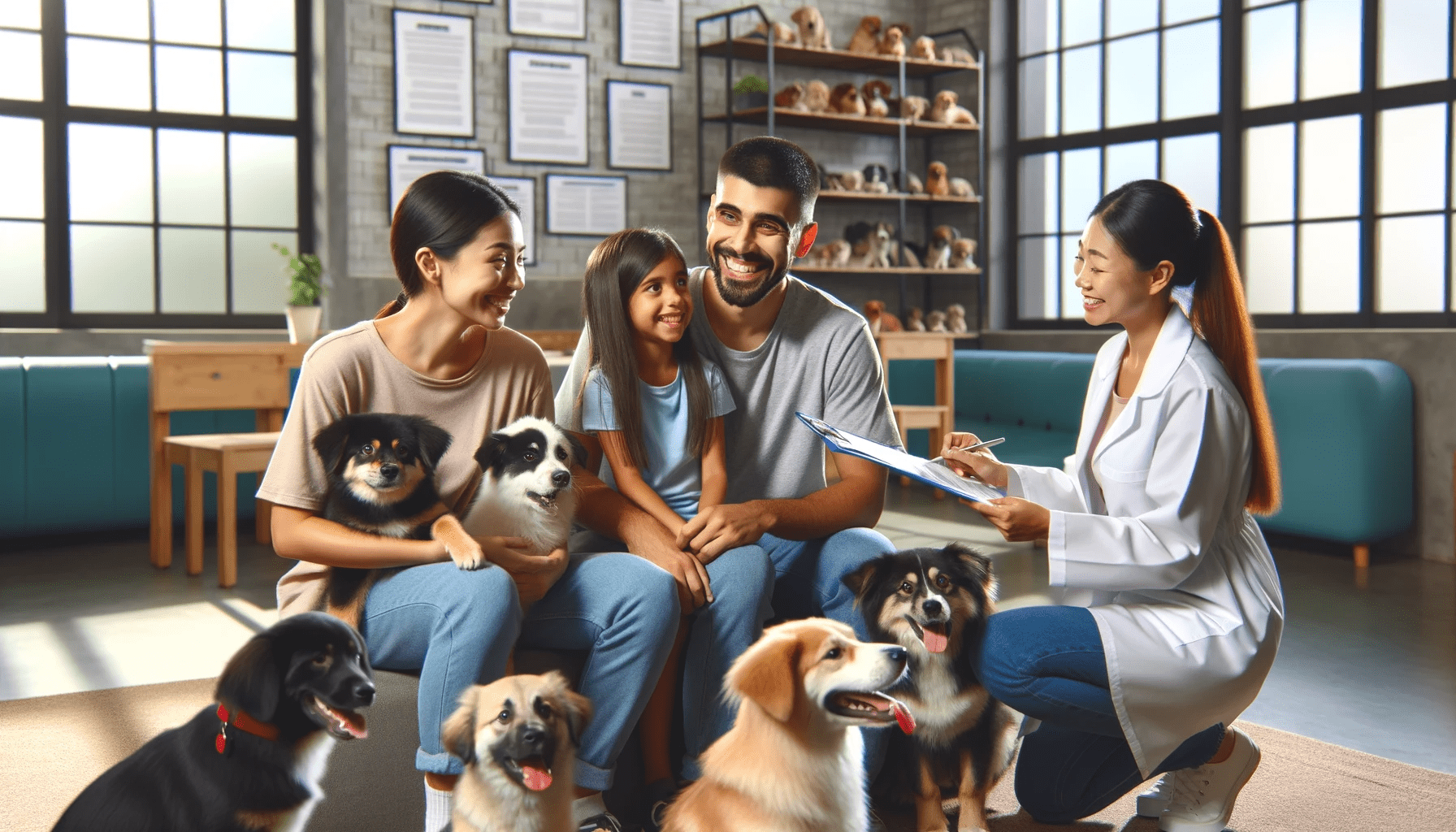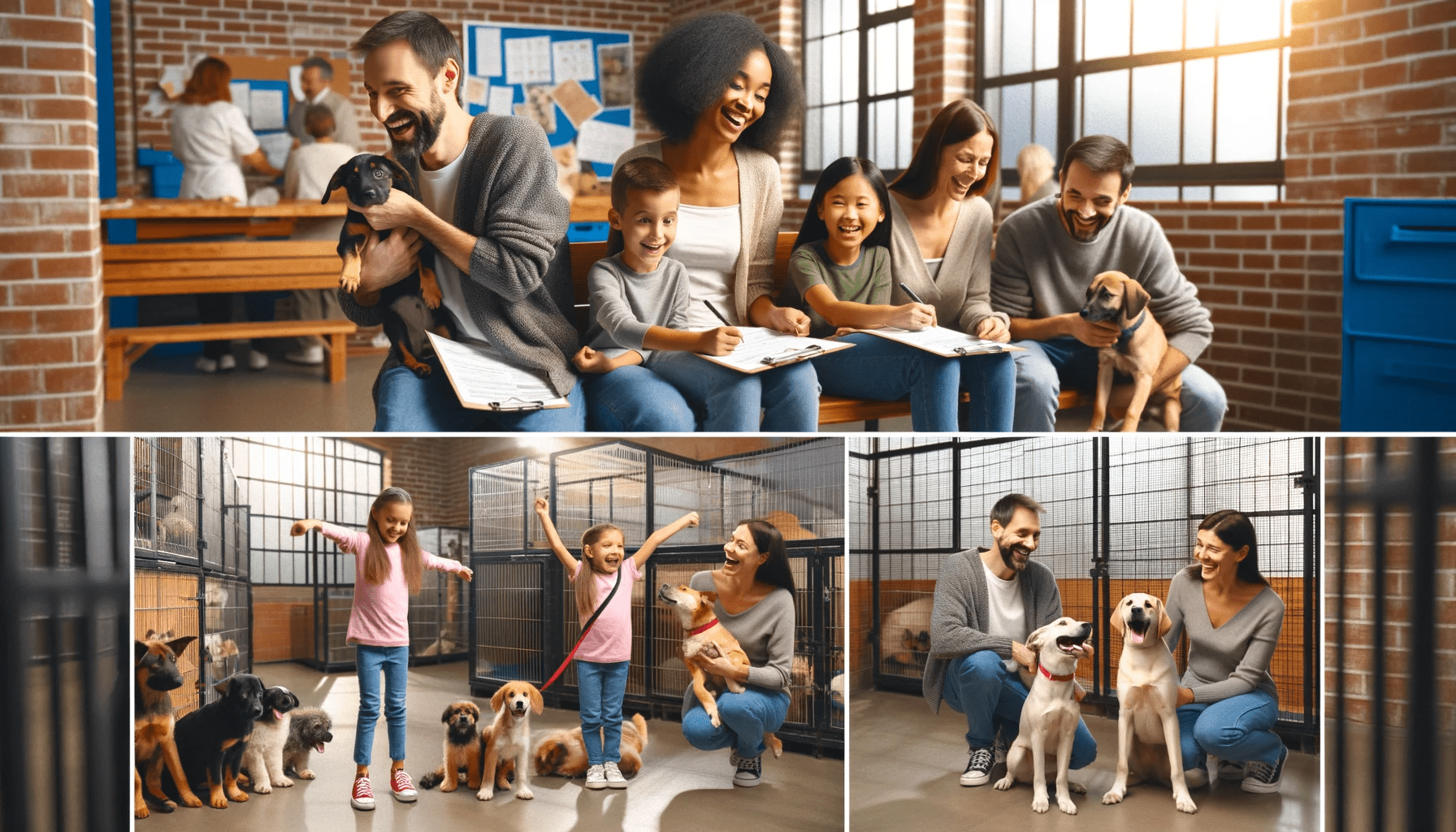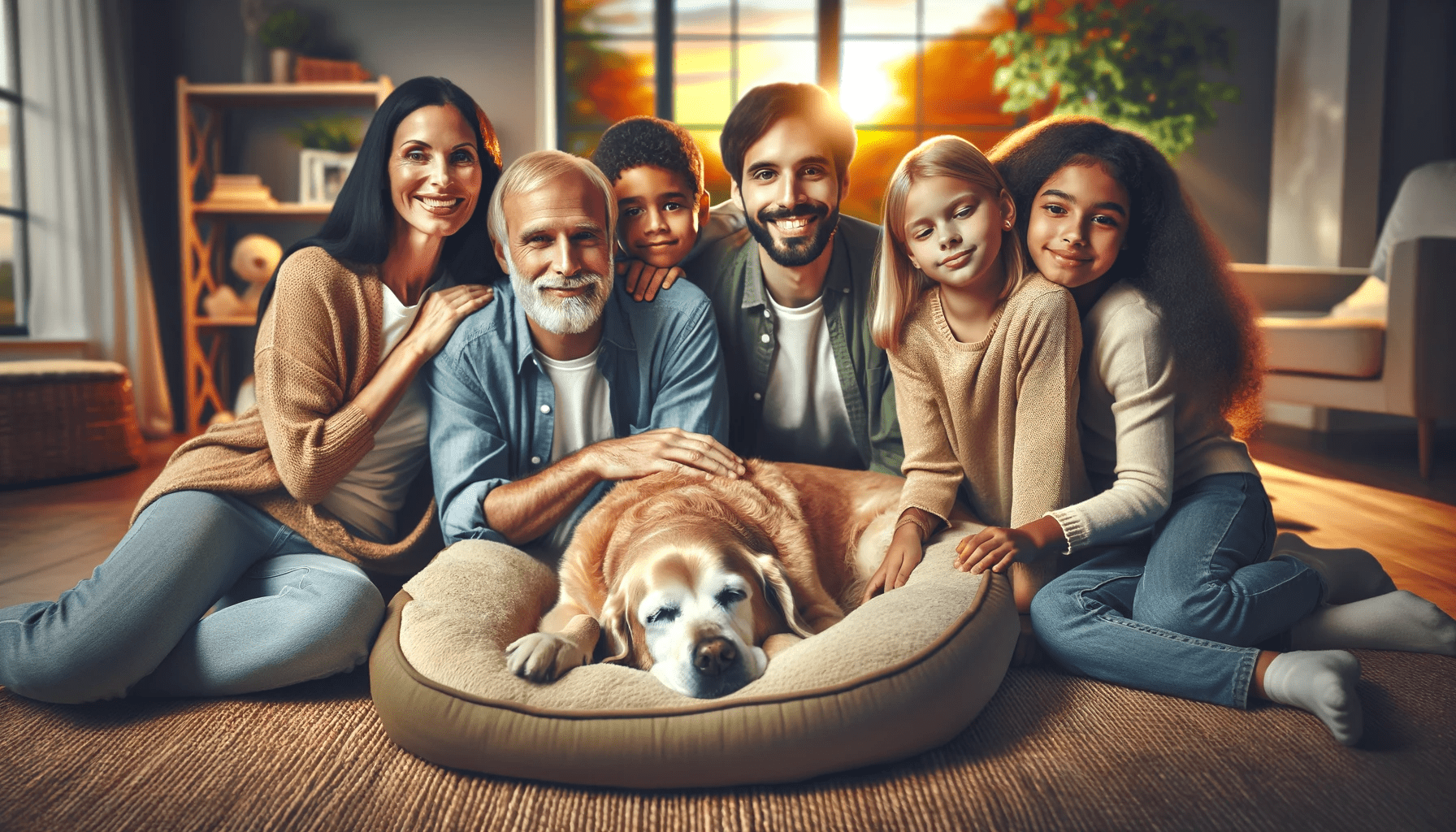Are you considering adding a furry friend to your family? Adopting an older dog might be the perfect choice for you.
Not only will you experience the joy of giving a deserving pup a forever home, but there are also numerous benefits for your family. From improved emotional well-being to instant companionship, adopting an older dog can bring love, happiness, and a sense of fulfillment into your life.
Discover the five ways adopting an older dog can positively impact your family.
Key Takeaways
- Boost in emotional well-being and empathy through companionship and love provided by older dogs
- Lower energy levels and increased independence make older dogs a good fit for busy households or limited time for exercise
- Older dogs have established behavior and training, making them well-behaved and adaptable in various social situations
- Adopting an older dog reduces the financial burden of raising and training a puppy, with lower maintenance and complete medical history. Additionally, older dogs provide instant companionship and a sense of stability and comfort to the family.
Improved Emotional Well-being
By adopting an older dog, you can experience a boost in your emotional well-being through the companionship and love they provide. One of the significant benefits is the increased empathy that comes with having a canine companion. Dogs have a unique ability to sense and respond to our emotions, offering comfort and support when we need it most. Through their presence, they teach us how to be more empathetic towards others as well. As we care for our older dogs, we become more attuned to their needs and emotions, which in turn enhances our overall capacity for empathy.
Furthermore, adopting an older dog can also lead to improved social skills. Dogs are social animals, and when we bring them into our lives, they encourage us to be more social too. Taking your dog on walks or visiting dog parks provides opportunities for interaction with other dog owners and enthusiasts. This shared interest can lead to new friendships and connections. Additionally, having a dog can serve as a conversation starter, making it easier to engage in social situations and break the ice.
Lower Energy Levels
With an older dog, you can expect lower energy levels in comparison to a younger pup. This can be beneficial for your family in several ways:
- Easy transition: If you have a busy household or limited time for exercise, an older dog can adapt more easily to a lower energy lifestyle. They're content with shorter walks and less demanding playtime, making it easier for your family to incorporate them into your routine.
- Increased independence: Older dogs have typically outgrown their puppy phase and are more self-sufficient. They don't require constant supervision or constant entertainment, allowing your family members to have more independence and focus on their own activities.
- Calmer atmosphere: An older dog's lower energy levels can create a calmer and more relaxed environment in your home. This can be especially beneficial if you have young children or elderly family members who prefer a quieter and less active atmosphere.
Adopting an older dog with lower energy levels can be a wonderful addition to your family. They offer a sense of stability and require less physical exertion, while still providing companionship and love. So, if you're looking for a furry friend that can fit into your lifestyle without overwhelming energy, consider adopting an older dog.
Established Behavior and Training
When adopting an older dog, you'll benefit from their established behavior and training, as they've already gone through the process of learning and adapting to household routines. This is especially advantageous when it comes to their socialization skills and adaptability training.
Older dogs have had more time to develop their socialization skills, which means they're generally better equipped to handle different social situations. They've likely been exposed to various people, animals, and environments, allowing them to become more comfortable and confident in different settings. This can be particularly beneficial if you have a busy household or if you enjoy spending time with friends and family. Your older dog will likely be more relaxed and well-behaved in these situations, making it easier for everyone to enjoy their time together.
Additionally, older dogs have already gone through the process of adaptability training. They've learned how to adjust to new environments, routines, and expectations. This means that they're more likely to settle into your home and family life seamlessly. Whether you have young children, other pets, or a busy schedule, an older dog can adapt to these circumstances more easily than a younger, less experienced dog.
Reduced Financial Burden
Adopting an older dog can alleviate the financial burden associated with raising and training a puppy. When you bring home a puppy, there are countless expenses that quickly add up. From vaccinations and spaying/neutering to puppy classes and obedience training, the costs can be overwhelming. However, adopting an older dog can significantly reduce these financial burdens and provide you with a more budget-friendly option.
Here are some key ways adopting an older dog can help you save money:
- Lower maintenance: Older dogs generally require less maintenance compared to puppies. They're often already house trained, saving you the cost of puppy pads or professional training services. Additionally, they may have already gone through the destructive chewing phase, meaning you won't have to replace chewed-up furniture or shoes.
- Health benefits: Older dogs usually come with a complete medical history, allowing you to be aware of any pre-existing conditions. While this can be seen as a potential financial burden, it also gives you the opportunity to make informed decisions about their health care. With this knowledge, you can budget for any necessary medications or treatments, ensuring your older dog receives the best care without unexpected expenses.
- Reduced supply costs: Puppies require a plethora of supplies, such as crates, food bowls, toys, and bedding. Adopting an older dog means you can often bypass these initial costs, as many shelters provide these items when you bring your new furry friend home. This can help alleviate the financial strain of purchasing all these supplies upfront.
Instant Companionship
An older dog can provide your family with immediate companionship, filling your home with love and joy. Adopting an older dog means skipping the puppy stage and immediately gaining a loyal and loving companion. Older dogs have already developed their personalities and are often more settled and calm compared to younger dogs. This makes them the perfect addition to any family, as they can bring a sense of stability and comfort to your home.
One of the greatest benefits of adopting an older dog is the opportunity to create a lifelong bond. These dogs may have had previous owners or may have experienced difficult circumstances, making them even more appreciative of their new home and family. They understand the value of love and companionship and will reciprocate with unconditional love.
In a world that can sometimes feel isolating, an older dog can offer a constant source of companionship. They'll always be there to greet you at the door, provide comfort during challenging times, and share in your joys and triumphs. Their presence can bring a sense of purpose and fulfillment to your family, reminding you of the simple pleasures in life.
Frequently Asked Questions
What Are Some Common Health Issues That Older Dogs May Face?
As your older dog adjusts to a new home, it's important to be aware of common health issues they may face. Regular vet check-ups can help detect issues like arthritis, dental problems, and vision/hearing loss.
How Long Does It Typically Take for an Older Dog to Adjust to a New Home?
It typically takes an older dog a few weeks to adjust to a new home. During this adjustment period, it's important to be patient and understanding. The bonding process may take time, but it's worth it for the love and companionship you'll receive.
Are There Any Specific Considerations or Challenges When Adopting an Older Dog With Young Children?
When adopting an older dog with young children, there can be specific challenges. It's important to consider how the dog will adapt to a new home with young children and the potential challenges that may arise.
What Resources Are Available for Families Who Need Help With the Financial Costs of Owning an Older Dog?
Financial assistance for owning an older dog is available through grants and scholarships. These resources can help alleviate the financial burden and ensure that your family can provide the best care for your furry friend.
How Can Adopting an Older Dog Benefit Families With Busy Schedules or Limited Time for Training and Exercise?
Adopting an older dog benefits busy families by providing a ready-made companion who requires less training and exercise. They bring joy and love, and with proper socialization, they can easily adapt to your schedule and lifestyle.
Conclusion
In conclusion, adopting an older dog can greatly benefit your family in numerous ways.
Not only will you experience improved emotional well-being, but you'll also appreciate their lower energy levels and established behavior and training.
Additionally, you'll find relief in the reduced financial burden of owning an older dog.
Most importantly, you'll instantly gain a loyal and loving companion who'll bring joy and happiness into your home.
Consider opening your heart and home to an older dog today and experience the amazing rewards that come with it.
